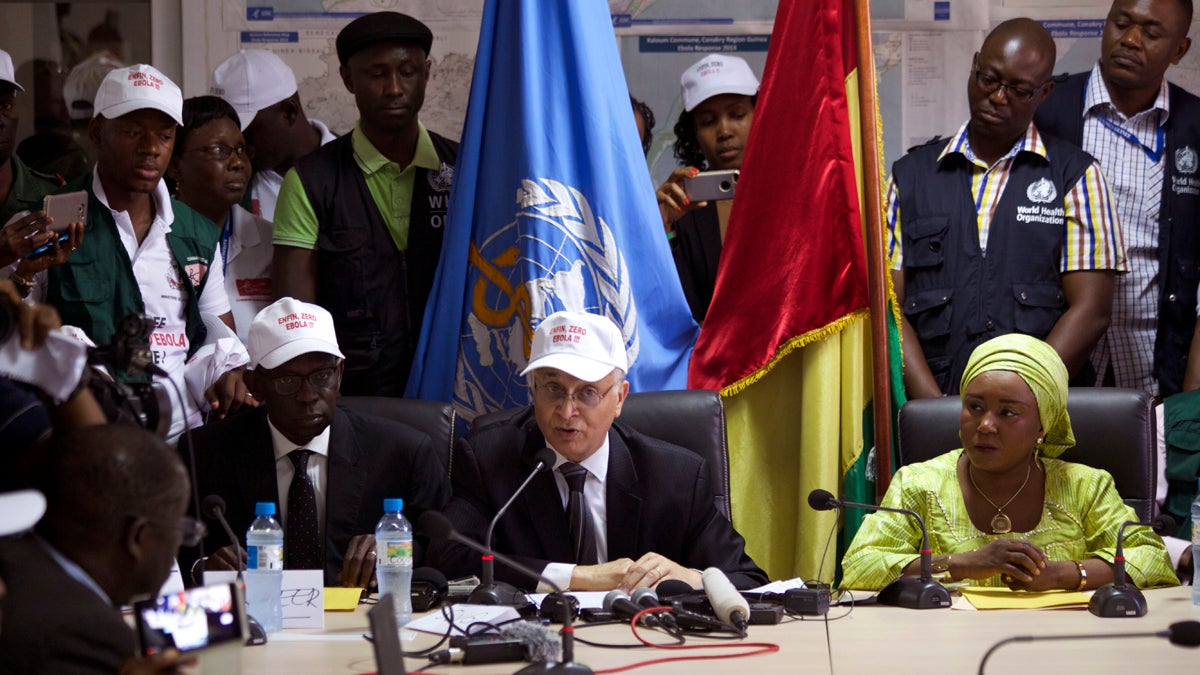As disease ebbs in West Africa, Philadelphia halts Ebola monitoring

Mohamed Belhocine (center), a representative from the World Health Organization, speaks during a press briefing in Conakry, Guinea, last month. Guinea has been declared free from transmission of Ebola, the World Health Organization said Tuesday, marking a milestone for the West African country where the original Ebola chain of transmission began two years ago leading to the largest epidemic in history. (Youssouf Bah/AP Photo)
After more than a year of intense screening efforts, the Philadelphia Health Department will stop monitoring travelers from Ebola-affected countries.
Many have forgotten the heightened health concerns over Ebola in the U.S. But Caroline Johnson, director of the city’s division of disease control, said health officials have been on alert since the fall of 2014.
Staffers from the health department checked in with travelers from Liberia, Sierra Leone, Guinea for 21 days following their arrival in Philadelphia. That monitoring lasted for about a year.
“We’ve been contacting these people every day, including Saturdays and Sundays, and we’ve done almost 1,000 patients in total since the onset of the program,” she said.
After lots of initial worry and anxiety, Philadelphians should know there is virtually no risk of importing Ebola to the U.S., Johnson said. The city’s health screening efforts are returning to normal.
City officials also have new guidelines for primary care providers.
Since the fall of 2014, many health offices have routinely asked patients about overseas travel — as part of the effort to screen for Ebola.
But now, those disease-specific questions can stop.
Infectious disease physician Neil Fishman is an associate chief medical officer at the University of Pennsylvania Health System
“We are preparing to stop asking the questions about West Africa, but we are debating how to maintain our preparedness,” Fishman said. “We’re are in the process of piloting several different approaches.”
Fishman says it might help to vary the questions that patients hear over and over, Fishman said, addign that Penn Medicine wants to gather travel histories without causing ‘question fatigue.'”
Now that concerns over Ebola have lessened, infectious diseases physician and hospital epidemiologist Henry Fraimow said Cooper University Hospital is also looking to change the script.
“Recognizing that a travel screen is a very important part of accessing patients, there’s some debate on how to make sure you capture everybody but don’t make it an onerous process,” Fraimow said.
Fishman and Fraimow said heightened awareness of Ebola has helped educate patients about other illnesses associated with foreign travel such as MERS, malaria and polio.
WHYY is your source for fact-based, in-depth journalism and information. As a nonprofit organization, we rely on financial support from readers like you. Please give today.

